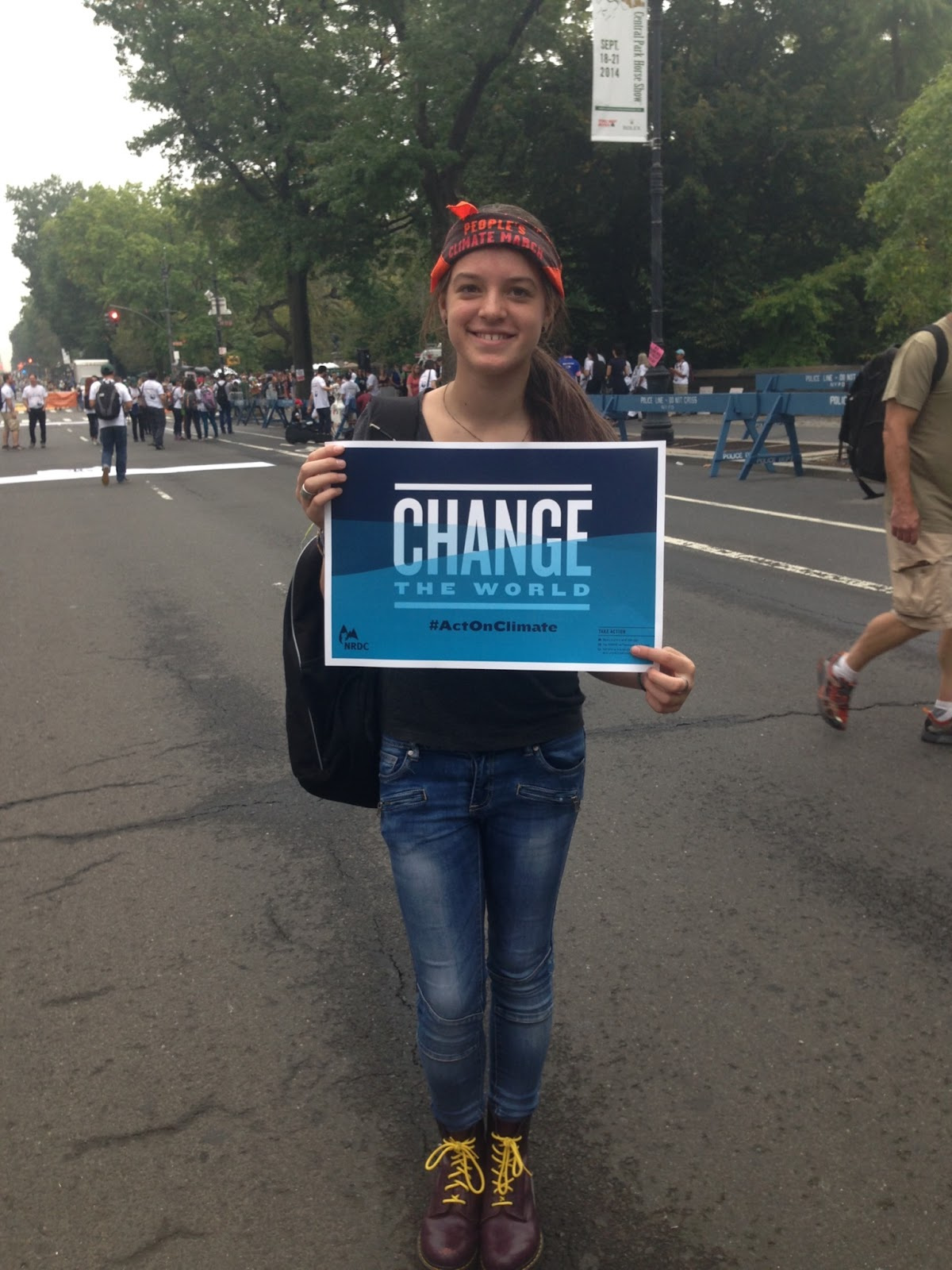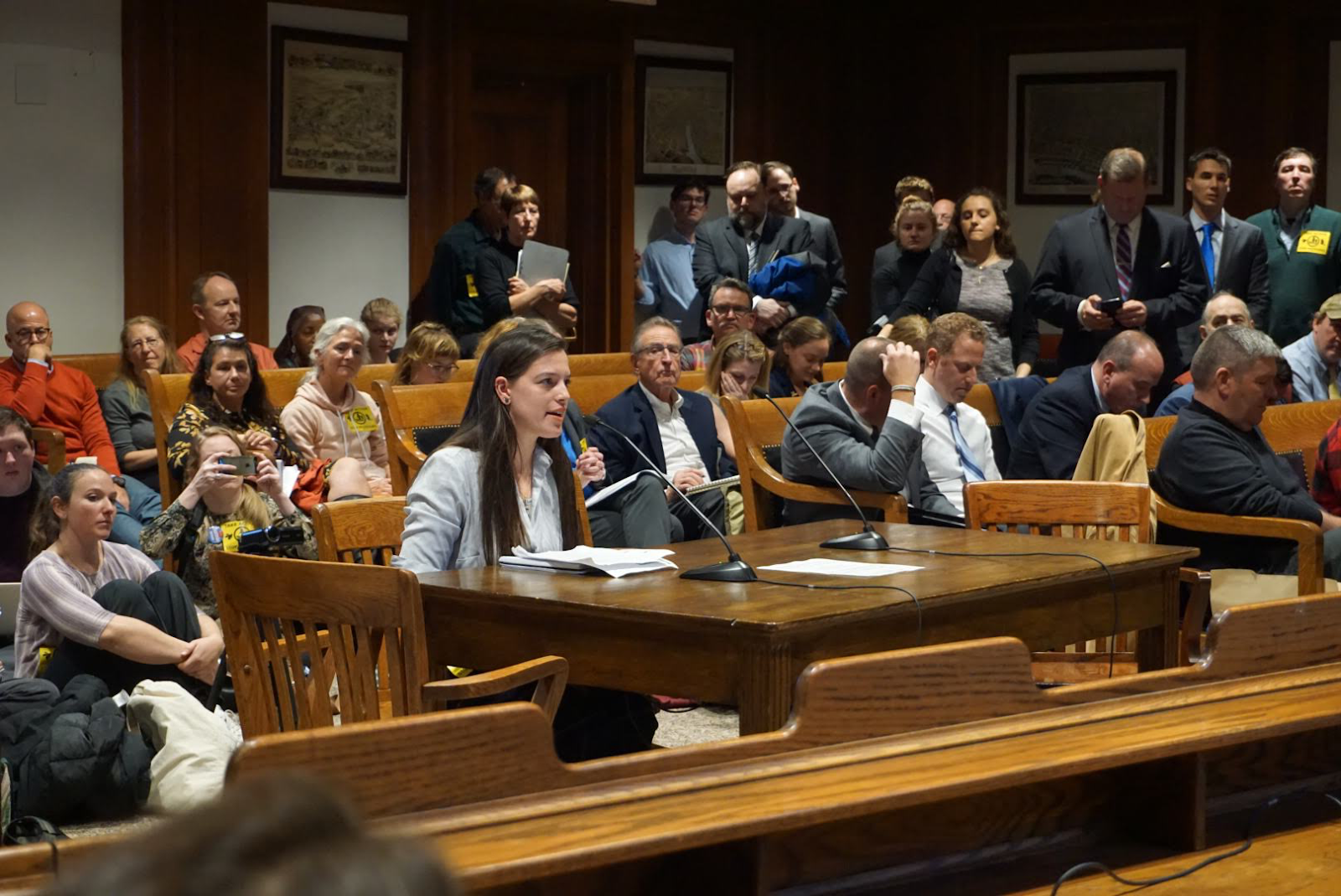
Waste and the World: 101 Ways the World Won’t End
I became interested in studying the environment in my freshman year of college at the University of Toronto. I had a slot to fill in my schedule and I thought, “why not?” The class was called Intro to Environmental Studies, but we called it “101 ways the world will end”. That’s how it felt – truly. We’d come to class, learn about an environment problem I hadn’t even imagined, and leave without talking about solutions. It was depressing, but it also made me curious. I knew there must be people out there who were working on addressing these environmental problems, and I wanted to be one of them.
I decided to transfer to Scripps College, outside LA, where I could study Environmental Analysis and also be surrounded by mountains, desert, and ocean. I took a semester off before transferring, moving to Boston. There, I began working with MASSPIRG, a public interest advocacy organization with a focus on environmental, public health, and consumer protection issues in Massachusetts. On my first day, I sat down with Janet Domenitz, the executive director. She told me that the state of Massachusetts was about to release their solid waste master plan, which would outline the state’s waste management plan for the next ten years.
Waste was something I had been aware of peripherally, growing up. I had spent my whole childhood watching my parents, friends, teachers meticulously separate their recycling from their trash. We were taught as children that this was the answer, that we could do our part and make an impact. It wasn’t until college that I learned where most of that recycling was going – straight back to landfills.

Me, age 14, at my first climate march
MASSPIRG was drafting an alternate plan – the Zero Waste Master Plan. It raised the questions: why are we allowing this continual outpour of waste in our state? Why are we allowing landfills and incinerators to leak toxins into our communities? The Zero Waste Master Plan didn’t just say where to put waste; it laid out how to make less of it. It outlined all the ways we could first reduce, then divert our waste – to recycling, to compost, to a way where those materials could be useful again.

Testifying in favor of banning pesticides to Massachusetts State Congress, on behalf of MASSPIRG
The more I learned, the more I realized there was a disconnect between what I’d believed growing up and what I was discovering about waste. It frustrated me. I’d been told in school that recycling was the answer; that it made it like the waste had never happened. I know now, there’s no such thing. Not only is recycling a process in itself that consumes resources, but also, the majority of the recycling which gets meticulously put in bins by my community and those all over the country, gets sent right to landfills. This was not the only time I’ve been misled by seemingly effective solutions. I’d been introduced in high school to a wonderful new technology: “compostable” plastic. It was hailed for being made of plants and degrading back into dirt. I know now that most composting facilities either can’t or won’t accept that material, and without industrial composting, it lasts in the environment just as long as regular plastic. I remembered the time I had advocated for those cups to be used in my temple. I felt misled, lied to.
All of these false solutions are meant to entice us; to tell us that we can still keep a system of use and throw-away. But we can’t. What we can do – must do – is change our system to not produce so much waste in the first place. That was the answer that cut through all the false solutions.
I began interning with Environment Washington this summer. In my first meeting with Environment Washington’s Advocate, Pam, I was immediately excited by the fact that Environment Washignton is trying to implement an Extended Producer Responsibility bill in Washington. Producer responsibility is centered around the idea that companies which make waste should bear responsibility for its disposal. Having financial responsibility for the end of life treatment of their products will incentivize companies to make sustainable choices in packaging and material use. This was like the Zero Waste Master Plan, a new way to do things, based on reduction of waste and accountability for waste producers. Now, as part of Environment Washington, I’m helping build grassroots support from Washingtonians to put extended producer responsibility into action in Washington. I’m not just learning about real solutions, I’m helping to put them into action!
Working with organizations like MassPIRG and Environment Washington changed my view on environmental work. It doesn’t feel like “101 ways the world will end” anymore. It feels like we are working our way to a better system. There are still false solutions out in the world, sometimes it can be hard to distinguish them from what’s really effective. So much of what we’re doing is figuring out what solutions work and make sense for our communities. Everyone I speak to wants to make our environment better, but not many have a sense of how. Working on big picture solutions like producer responsibility, which would change our whole system for how we handle waste, gives us a roadmap for how we can change meaningfully.
